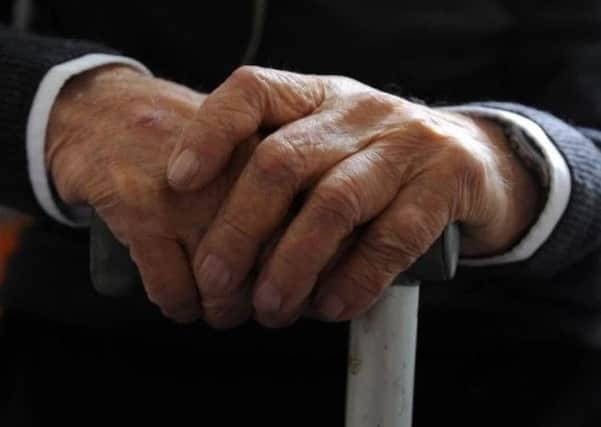Negativity over the '˜burden' of older people needs to be reversed


Speaking ahead of the release of his annual report for 2017, which focuses on “ageing well and dying well”, Dr Lincoln Sargeant said he hoped to spark “conversation and action” among health and social care providers, employers, and those approaching retirement and their later years.
An executive summary of the report, to be considered by members of North Yorkshire County Council’s Health and Wellbeing Board on Thursday, states that by 2025, almost a quarter of the population in North Yorkshire will be 65 or over.
Advertisement
Hide AdAdvertisement
Hide AdPresently, there are as many people aged 75 or over - 63,700 - as there are children aged under 10 - 63,300. But last year, just 6.6 per cent of those aged 65 or over in North Yorkshire were in receipt of social care from the council.


Dr Sargeant told The Yorkshire Post: “When I listen to discussion around older people it creates the impression that every one out there is, to use a delicate phrase, ‘a burden’. I want to talk about the experience of older people in a more positive way. More than 90 per cent are getting on with their lives and are nowhere near needing social care - far from the impression that every older person is a draw on the public purse.
“The majority volunteer, continue to work, look after their grandchildren, and give massively to our communities. We need to be able to support social care but not in a way that undermines the contribution older people do make.
“That 6 per cent in receipt of social care is costly but we can do a lot within our county council to deliver very high quality services as an alternative.”
Advertisement
Hide AdAdvertisement
Hide AdLife expectancy has risen in the county to 80 for men and 84 for women, and while the gap between the most and least deprived communities has remained the same, there are vast differences across the district. Men in the most deprived communities in Scarborough are expected to live to 72.5 years, and the least deprived communities in Craven to 85.3 years, a gap of 12.8 years.


In the report, Dr Sargeant said policies and plans should be put in place to ensure older people are kept part of their communities, ensuring barriers to social inclusion are reduced. This, and encouraging adoption of healthy living earlier in life, could decrease the gap.
He said loneliness and social isolation, the subject of Yorkshire Post campaigning since 2014, and remained a challenge and the “social context” of a person using services needed to be understood.
“What we are very good at is dealing with the physical problem, but not putting that into a social context,” Dr Sargeant said. “It is a very different scenario with a fall, for example, if a person lives with their extended family as to if they lived alone in a rural setting. We need to pick up on all the factors that might make someone vulnerable.”
Advertisement
Hide AdAdvertisement
Hide AdThe report focuses on three distinct ‘transition’ periods - preparing for a healthy retirement; the period of increased support; and end of life. Dr Sargeant said it was crucial that each period was prepared for, and that “living with the end in mind, rather than being morbid”, could be “liberating” for older people and their families.
The full report will be released next month.